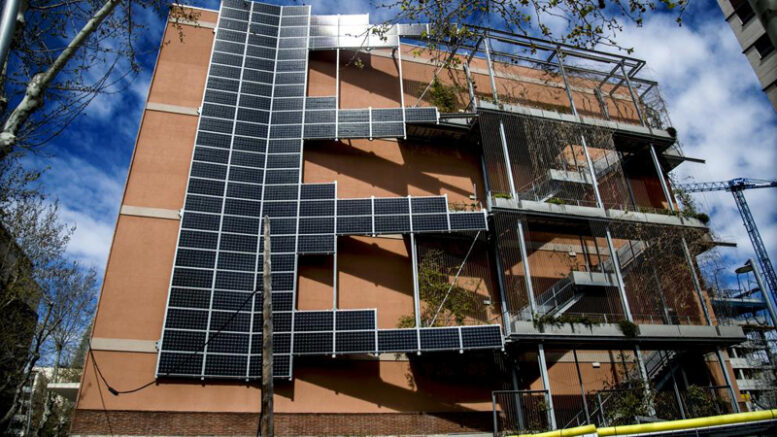The government of President Pedro Sánchez announced on Friday its approval of two new Decretos Leyes (‘Decreed Laws’) containing measures aimed at further combating energy poverty in Spain and encouraging the self-consumption and sharing of renewable energy produced by individual homeowners, businesses and educational institutions.
 Following the weekly meeting of the government’s Council of Ministers on Friday, government ministers announced approval by decree of a new National Strategy against Energy Poverty 2019-2024, which will prohibit the cut-off of energy supplies to any residential property during extreme weather conditions, such as a cold or heat wave.
Following the weekly meeting of the government’s Council of Ministers on Friday, government ministers announced approval by decree of a new National Strategy against Energy Poverty 2019-2024, which will prohibit the cut-off of energy supplies to any residential property during extreme weather conditions, such as a cold or heat wave.
The approved ban on energy cutoffs during extreme weather periods also amplifies a previously approved prohibition on energy companies cutting the supply to families at risk of poverty and social exclusion for up to four months. Now, utility companies will not be able to cut energy supplies to vulnerable households for eight months, during which a minimum supply of energy to meet a family’s daily needs must be supplied.
At the same time, the government announced a new regulatory framework on the self-consumption and sale of surplus electricity into Spain’s power grid by individual producers of solar and wind energy.
? ? CLICK ABOVE TO WATCH VIDEO ? ?
The new regulations by-pass the previous requirement that small producers of renewable power who wish to sell surplus electricity to power companies first register as a business. Now, individual homeowners, residential communities, business parks or educational institutions that produce their own renewable energy can sell electricity in excess of the amount they consume to their local utilities and be reimbursed on their monthly residential or commercial energy bill.
The new regulations also enable neighbours in a residential community or adjacent businesses in an industrial park to consume the surplus electricity produced by neighbouring homes or businesses.
It is hoped that these regulations not only increase the quality of life of Spain’s vulnerable residents but also pave the way to cheaper energy, as well as more energy-efficient resources such as those written in this article here.
Spain’s Decreto Ley legislative process allows a government to effectively enact legislation immediately, then take the legislation to the floor of Congress without debate or amendment for a vote of simple majority approval or rejection. Because Congress is currently dissolved in the run-up to 28th April general elections, approval or rejection of the decreed laws will be voted on by the interim 65-member Diputación Permanente (‘Permanent Commission’) made up of 60 delegates from all parties in Congress, plus the five-member Mesa Executiva (‘Executive Committee’) of the dissolved legislature.
? Read More in Spanish at RTVE, Europa Press and La Vanguardia …
? Click to read more news about energy poverty in Spain …
Check out more news from Spain about:
? Animal Welfare ? Corruption/Transparency ? Discrimination ? Education ? Children’s Rights ? Environment & Sustainability ? Fair Trade & Development Aid ? Healthcare ? Historical Memory ? Housing & Homelessness ? Human Rights ? Justice ? Labour & Unemployment ? LGBT ? Peace & War ? Politics ? Poverty ? Refugees & Migration ? Technology & Social Enterprise ? Women’s Rights

All images at ProgressiveSpain.com are the copyright of their respective authors/owners and are reproduced here for non-commercial, journalistic purposes in accordance with Fair Use doctrine. All other content is Copyright © 2015-2019 ProgressiveSpain.com and is licensed under a Creative Commons Attribution-NonCommercial-ShareAlike 4.0 International License.

